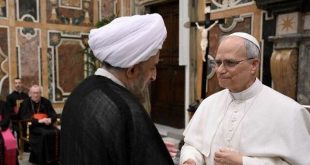Considering ongoing tensions and the perception that critique of religion is not tolerated in Islam, the 9th Annual Contemporary Fiqhī Issues Workshop, hosted by the Al-Mahdi Institute, seeks to provide a virtual forum for discussions surrounding free speech, scholarly critique, and the limits of expression in Islam.
Considering the current circumstances surrounding COVID-19, Al-Mahdi Institute (AMI) will host the Workshop virtually.
Many western liberal democracies uphold the right to free speech and expression as a fundamental freedom, which albeit not an absolute right, extends to the mockery of venerated figures. Critique of Islam and ridicule of the Prophet Muhammad have disconcerted some Muslim factions. As a result, some Muslim jurists condemn many expressions that fall under the rubric of free speech in liberal democracies as blasphemy, which they consider to be a punishable crime.
Considering ongoing tensions and the perception that critique of religion is not tolerated in Islam, the 9th Annual Contemporary Fiqhī Issues Workshop, hosted by the Al-Mahdi Institute, seeks to provide a virtual forum for discussions surrounding free speech, scholarly critique, and the limits of expression in Islam. The Workshop invites papers from seminarian trained jurists or those with an understanding of the traditional seminarian system that shed light on how freedom of expression and its limits are understood in the Muslim legal discourse and the extent to which it may be influenced by various socio-political factors.
These important contemporary questions at the intersection between political theory and jurisprudence are positioned within broader discussions regarding the parameters of expression within Islam. As such, the Workshop welcomes a range of papers from multidisciplinary backgrounds dealing with, but not limited to:
- Philosophical, theological, and ethical analysis regarding freedom of
- Analysis of the scope and limits of free thinking and scholarly critique in
- Analysis of legislation in both Muslim and non-Muslim countries relating to the freedom of expression and
- Empirical research analysing the lived experiences of Muslims and the impact of the discourse on gender relations, intra and inter-faith relations, and societal relations.
The inclusive model of the Workshop is pleased to host presenters from diverse academic backgrounds, alongside relevant practitioners, from a range of disciplines. As has become an effective format in our previous annual workshops, fiqhī debate will be positioned alongside contributions from broader legal and social science approaches – thereby enriching a multidisciplinary understanding of contemporary outlooks dealing with expression and its limits in Islam.
Important Data
Proposals Submission Deadline: 31st March 2021
Workshop Date: 1st – 2nd July 2021
Venue: Al-Mahdi Institute, Birmingham, UK.
Proposals for a single presenter should include the following:
- Contact information, and a brief bio of presenter
- Tentative title
- Abstract(s) (400-word limit)
Proposals and queries should be sent by e-mail to: Mahdiyah Abdul-Hussain (mahdiya.abdulhussain@almahdi.edu)
 Ijtihad Network Being Wise and Faithful Muslim in the Contemporary World
Ijtihad Network Being Wise and Faithful Muslim in the Contemporary World
